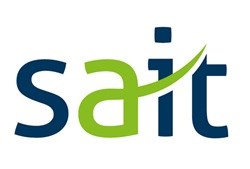






"At present, it takes an excessive amount of time, either by the owner of the small business, or by a tax practitioner at the business owners' cost, to ensure tax compliance and to make sense of complex fiscal legislation and reporting requirements," explains Smulders.
SARS have been sensitive to balance the far reaching powers entrusted to them under the 2012 Tax Amendment Act with self-imposed mechanisms designed to protect tax payers' rights, and to provide platforms to engage constructive dialogue with important stakeholders.
"The recent appointment of Judge Ngoepe as Tax Ombuds, and the announcement of the Davis Tax Policy Review Committee illustrate how the National Treasury are keen to engage with the taxpaying constituency in their effort to improve tax morale, grow the tax base and reduce the budget deficit," comments chief executive of SA IT, Stiaan Klue.
A priority highlighted by the Davis Committee head, Judge Dennis Davis, is the administrative burden which the new Tax Act places on small business; a crucial sector which is presently under represented in the tax base, but which can assist the government with its aim of creating five million jobs in the next ten years as stipulated in its New Growth Path.
The budget deficit is expected to widen to 5.2% of gross domestic product (GDP) this year, and it is unlikely that revenue taxes can cover this shortfall, explains Prof Mathew Lester, member of the Tax Review Committee. "From an approximate total base of 52 million people in South Africa, only 13 million are on the tax register, of which only 3.8 million falls above the tax threshold," adds Lester.
The National Planning Commission indicate that small, medium and micro enterprises (SMMEs) contribute more than 40% of GDP and accounts for more than 60% of total employment in South Africa. SMMEs' contribution to the total corporate tax is on average 34%, and continues to grow. "In the past fiscal year, SMME contribution increased by 13%, supported by financial and trade sectors," adds Klue.
However, a call for clear incentives and a simplified tax regime for small businesses is not unique to South Africa, comments Klue, who was part of the South African delegation who met with the UK office of Tax Simplification in late 2013 to compare notes.
According to Klue, at the present point in time, the biggest single change to make life easier for small businesses in South Africa, both administratively and from a cash flow perspective, would be to allow the cash basis for VAT reporting, through linking accounting and tax treatment. "There is universal recognition that complicated tax systems risk high evasion, corruption and ultimately less investment potential," says Klue. "In order to increase the compliance of small businesses, every effort must be made to improve operational simplicity in the revenue system."